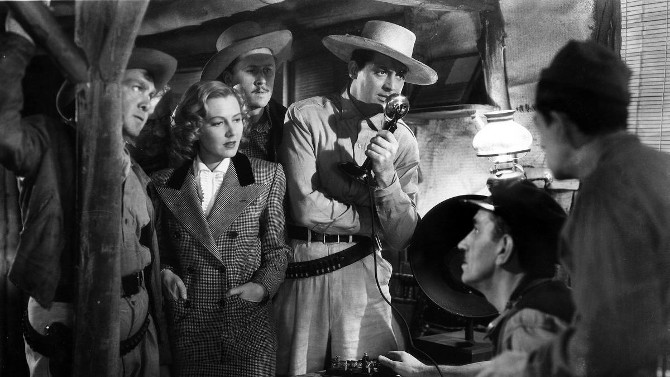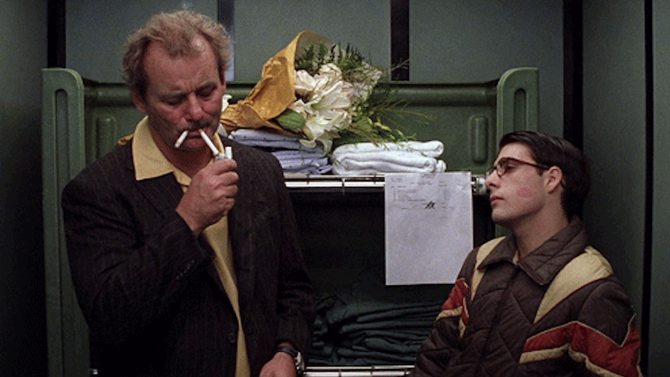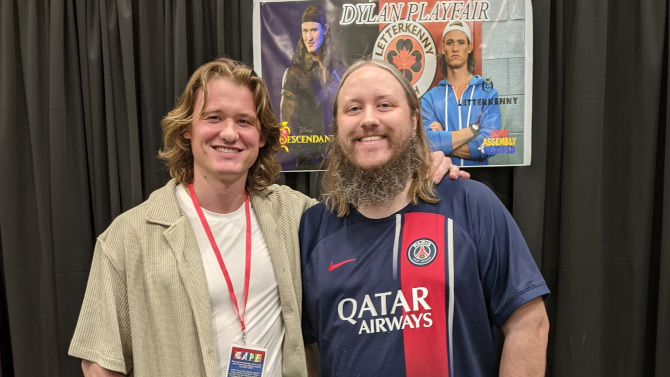
CAPE is 10!
Boy, how time flies when you’re wearing a CAPE, or to be more specific, enjoying yourself at the Cornwall and Area Pop Event, which, like all good things, has returned once more... and is excitingly celebrating its tenth anniversary this year!!! Attracting thousands of pumped up visitors on a rather dreary Saturday, April 26th, 2025, the locale was joyously cheerful thanks to the boisterous crowd filling the place... with a Sunday still to come for those in the Cornwall, Montreal, and Ottawa region.
-
Star Pick with John Carpenter
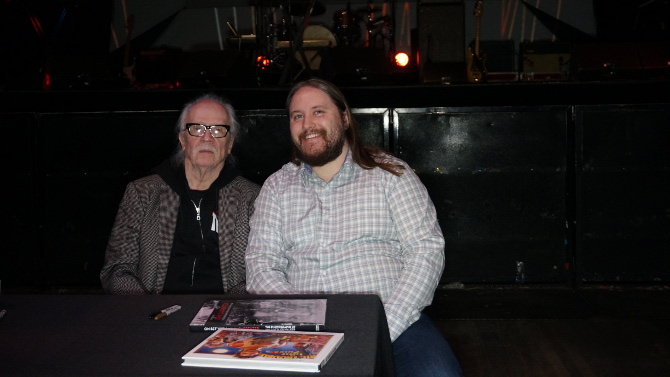 WingmanOnly Angels Have WingsMay 8, 2018
WingmanOnly Angels Have WingsMay 8, 2018What is there to say about an icon like John Carpenter? An auteur with the skill to make dynamic features with a minuscule budget, his film Halloween majorly influenced the slasher sub-genre (along with gialli, and other movies such as Peeping Tom, Psycho, The Texas Chainsaw Massacre and Black Christmas). One of the most prolific horror filmmakers since the 1970s, he followed up the October 31st related motion picture with titles like The Fog, The Thing, Christine, They Live, amongst many others, whilst he has branched out into other genres with films like Assault on Precinct 13 (action), Escape From New York and its sequel Escape From L.A. (sci-fi action), Starman (a sci-fi romance), and Big Trouble in Little China (an action adventure comedy).
-
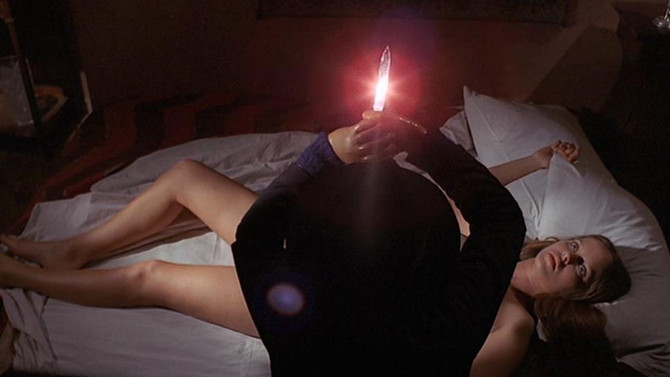
Web Sight
Black Belly of the TarantulaMay 6, 2018For those of you out there that are James Bond fans like I am, you will likely get a bit excited about this one. As I was doing some research on gialli a few weeks back, I stumbled upon 1971's The Black Belly of the Tarantula, directed by Paolo Cavara. Featuring an intriguing cast for Bond afficionados, Giancarlo Giannini (Rene Mathis in Casino Royale and Quantum of Solace), Claudine Auger (Domino in Thunderball), Barbara Bouchet (Moneypenny in the quirky 1967 version of Casino Royale) and Barbara Bach (Maj. Anya Amasova/Agent XXX in The Spy Who Loved Me) all star in this thriller, a unique cast ranging from the movies of Connery and Moore, to Craig and spoof spinoff. Oh, the horror, the horror: a sadistic, psychopathic serial killer, never truly seen (for the longest time, we only view his or her hands – always porting surgical gloves that make them look like plastic), is killing women by way of a most gruesome process. Utilizing acupuncture needles that are tainted with a poison that paralyses the target. . . the victims are poked in the back of the neck – still awake, eyes open wide in fear, they are unable to do anything as the murderer finishes them off in the most macabre ways.
-
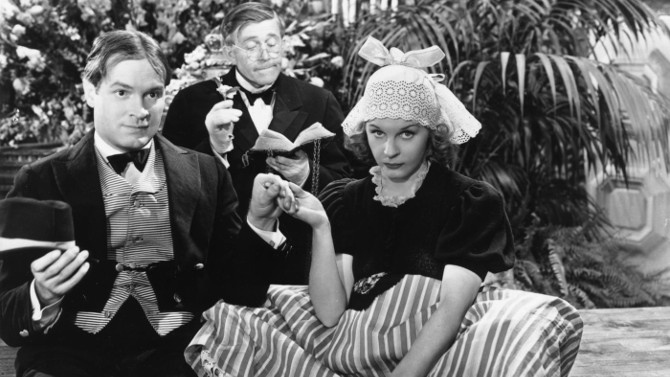
Muzzle Tov
Never Say DieMay 4, 2018A rich, hypochondriac of a man, John Kidley (Bob Hope), haunted by a Black Widow (a murderous, marry-a-wealthy-husband-a-year type woman, not a spider), Juno Marko (Gale Sondergaard), flees her side, making his way to a beautiful health-resort-centred town called Bad Gaswasser, Switzerland, hoping that the hidden locale, nestled amongst the picturesque Alps, will help him with his supposed condition, and, more importantly, in avoiding the persistent dame – hence the 1939 film’s title, Never Say Die. Now, of course, the quote offered at the opening is spoken by Kidley, and it references his perceived awful luck. And, to be honest, Ms. Marko is quite the woman. . . having ditched her most recent beau (she witnessed him slipping and falling off the Matterhorn from mere inches behind him – wink wink, nudge nudge), Kidley is her next mark, and it does not take her long to track the wealthy gent down once again. Here is a piece of witty dialogue from the film, emphasizing their rather amusing predicament:
-
Star Pick with Jayson Warner Smith
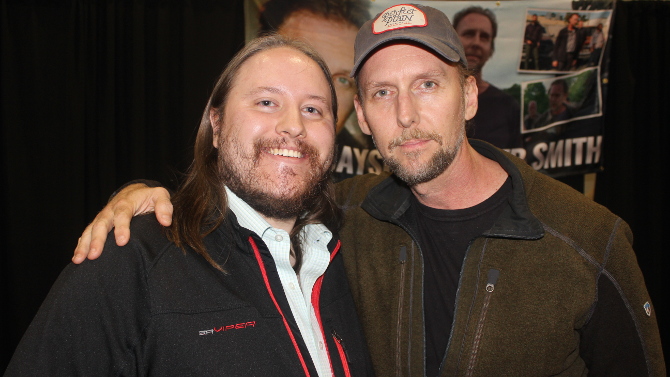 High School ConfidentialRushmoreMay 1, 2018
High School ConfidentialRushmoreMay 1, 2018I was fortunate enough to sit down with actor Jayson Warner Smith at CAPE (Cornwall and Area Pop Expo) recently. Perhaps best known as Gavin, Negan's trusted and rather level-headed manager of the Kingdom in The Walking Dead, he has quickly carved out several quality roles on both television and the silver screen in a short time. Also with a key role on the highly acclaimed series Rectify (which ran for four seasons and ended in 2016), his character of Wendall Jelks is a master antagonizer and death row inmate, while he takes a wholly different turn as a loyal yet wild right-hand man airplane pilot to Tom Cruise's character in 2017's American Made (directed by Doug Liman). He has also appeared on the big screen in films such as Footloose (the remake), Mississippi Grind, Christine, and Birth of a Nation.
-
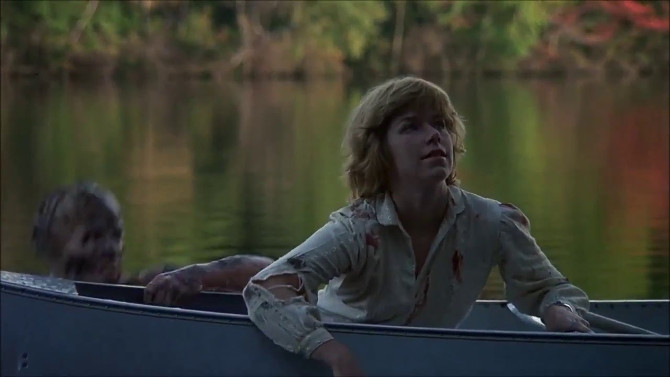
Friday Night Frights
Friday the 13thApril 29, 2018In a mere seven year span, three of the most iconic horror spooks of all-time were created: Michael Myers in Halloween (1978), Jason Voorhees in Friday the 13th (1980) and Freddy Krueger in A Nightmare on Elm Street (1984). Each has spawned a nearly inordinate amount of sequels and remakes: not including the original, nine (and soon to be ten), eleven, and eight, respectively. . . with one of those being a crossover – 2003's Freddy vs. Jason. It is somewhat reminiscent of the creative juices that were flowing in the horror craze of the 1930s and 1940s, when original, folkloric, and literary monsters became the stuff of Hollywood legend – think Dracula, The Invisible Man, Frankenstein, The Wolfman. . . and later (in the 50s), the Creature from the Black Lagoon (all of these films also produced a bevy of sequels). With Halloween already having been reviewed this past Halloween and A Nightmare on Elm Street being planned for this upcoming October (a perfect time to celebrate its thirty-fifth anniversary), Friday the 13th is on the chopping block today. Part of the slasher subgenre, it was released in the period’s Golden Age – 1978-1984, following in the wake of John Carpenter’s successful low-budget horror film.
-
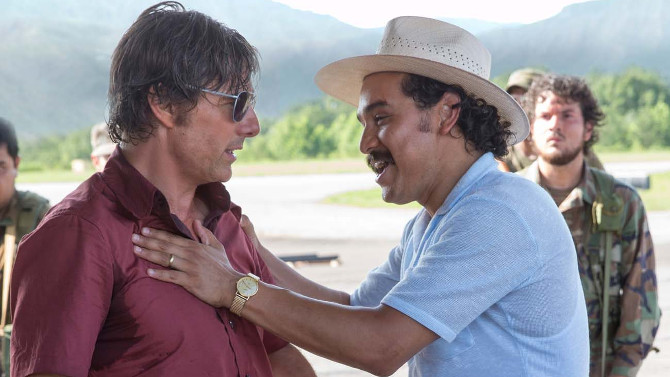
Flying High Under the Radar
American MadeApril 27, 2018With the “based on real events” thing getting a bit old, some recent films have started to have fun with this oft-used opening – American Hustle introed with “Some of this actually happened”, while today’s film, Doug Liman’s American Made, was described by the director as “a fun lie based on a true story”. . . a clever way to accentuate the addition of many fictional plot points to enrich the narrative. Tom Cruise plays Barry Seal, a seemingly staid airplane pilot secretly looking for a thrill in his exhausting, routine-driven life. Married to Lucy (Sarah Wright), they have what a traditionalist would coin – the middle class dream – family, home, and solid income. Yet, a well informed CIA agent, Monty ‘Schafer’ (Domhnall Gleeson), tracks Barry down at the end of one of his flights – it does not take much to convince the pilot to sign up, and he is soon working questionable missions for the agency all over Central America.

